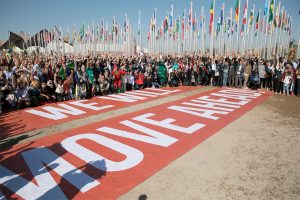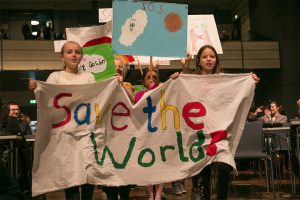20 June 2018: The EU has agreed to a set of rules towards its Clean Energy for All Europeans package, which collectively add up to an improvement above the EU’s current 2030 greenhouse gas (GHG) emission target. Legislation, agreed by the EU’s three governance bodies, the European Commission, Council and Parliament, contributes to progress towards its Energy Union, and updates the Energy Efficiency Directive and the Renewable Energy Directive.
The agreed legislation sees the EU’s 2030 renewable energy target, upon which its Nationally Determined Contribution (NDC) was modeled, increase from 27% of the energy mix to 32%. Similarly, the 2030 energy efficiency target has increased to 32.5% from the previous target of 30%. In announcing the new targets and negotiation outcomes, the EU has underlined its aims to become a world leader on renewables, prioritize energy efficiency, provide “a fair deal for consumers” and set in place its strategy on long-term GHG reduction.
Speaking at the opening of the Second Ministerial on Climate Action (MoCA), jointly hosted by Canada, China and the EU in Brussels, Belgium, from 20-21 June 2018, Miguel Arias Cañete, EU Climate Action and Energy Commissioner, highlighted that the revised targets would enable the EU to raise the level of ambition of its NDC to increase its 2030 emission reduction target to 45% from 40% in the current NDC.
The EU aims to become a world leader on renewables, prioritize energy efficiency and provide “a fair deal for consumers.”
The three legislative proposals in the Clean Energy for All Europeans Package complement a fourth on the Energy Performance in Buildings Directive, of a total eight to be adopted. These follow the revision of the EU Emissions Trading System (ETS), the Effort Sharing Regulation and the Land Use Change and Forestry Regulation which were adopted earlier in 2018. [EU Renewable Energy Press Release] [EU Energy Efficiency Press Release] [EU Governance Press Release] [Statement by Miguel Arias Cañete]
Responding to the announcement, Climate Action Network (CAN) Europe said that while the targets represent an increase compared to the original proposals from the European Commission, they still “do not reflect the urgency of the climate crisis,” and called for the EU to “hit the ground running and advance the energy transition much faster,” to ensure EU member States set out short- and long-term plans that are consistent with the Paris Agreement objectives.[CAN Europe Press Release]
The EU announcements come as Nicolas Hulot, French Minister for the Ecological and Inclusive Transition, and Svenja Schulze, German Federal Minister of the Environment, Nature Conservation and Nuclear Safety, met at Schloss Meseberg, Germany, on 19 June 2018. The French and German ministers highlighted the need for the EU to demonstrate international leadership to combat climate change, noting that an EU strategy 2050 for the long-term transformation towards greenhouse gas (GHG) neutrality is “not only a necessity, but also an economic opportunity,” as well as their resolve to ensure that the EU undertakes new commitments at the 24th session of the Conference of the Parties (COP 24) to the UNFCCC to update its NDC by early 2020, among others. [German Government Press Release]


